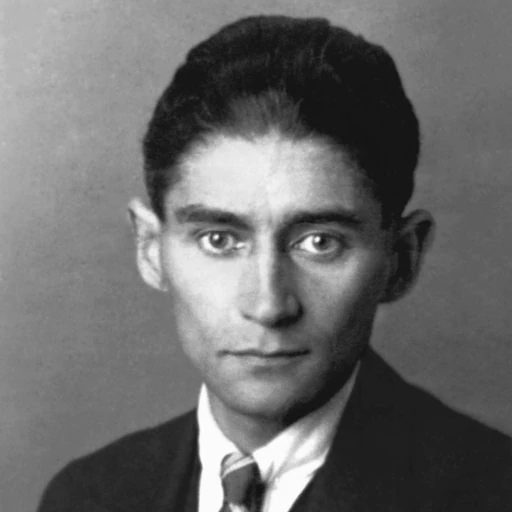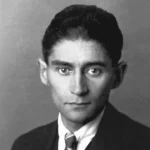“Self-control means wanting to be effective at some random point in the infinite radiations of my spiritual existence.”

- July 3, 1883 – June 3, 1924
- Born in the Austro-Hungarian Empire
- Writer, lawyer
- Had a major influence on 20th century literature with works such as “The Metamorphosis,” “The Trial,” and “The Castle”
Quote
“Self-control means wanting to be effective at some random point in the infinite radiations of my spiritual existence.”
Explanation
In this deeply introspective statement, Franz Kafka redefines self-control not as a simple act of repression or mastery over immediate impulses, but as the desire to be effective within the vast expanse of one’s spiritual existence. Kafka uses the metaphor of “infinite radiations” to suggest the boundlessness of the self or spiritual life—a realm where time, purpose, and identity may seem amorphous and ungraspable. Within this expansive field, self-control becomes the act of choosing a specific point or direction in which to exert one’s energy or focus, with the recognition that this choice is part of a much larger, unfathomable continuum of spiritual existence. Self-control, then, isn’t just about curbing one’s impulses or desires in the short term but about aligning oneself with a larger sense of purpose or effectiveness in the face of the chaos or vastness of existence.
Kafka’s description also hints at the fragility of human agency within a larger, seemingly random or indifferent universe. The “random point” Kafka refers to suggests that there is no absolute certainty or control over where one might focus their efforts, but it also suggests a conscious decision to engage meaningfully, however fleeting or uncertain that may be. In this sense, Kafka may be pointing to the existential tension between free will and determinism, where individuals attempt to exert control or purpose in a world that often feels governed by chance or fate. Self-control, then, becomes a form of resistance against the overwhelming forces of life, a way to assert some form of meaning even in the face of life’s seemingly random or unpredictable course.
In a contemporary context, Kafka’s view of self-control resonates with the experience of living in a world of overstimulation and constant distractions, where the individual is constantly confronted with competing demands for attention and energy. In such a world, self-control requires not merely avoiding distractions or external pressures, but an act of choosing where to direct one’s energy and attention in a meaningful way—something that feels increasingly elusive in a fragmented and chaotic environment. Kafka’s quote suggests that self-control isn’t about absolute mastery but about finding pockets of purpose and effectiveness in an otherwise overwhelming and unpredictable world. It becomes a way of making one’s life meaningful, even within the limitations and uncertainties of human existence.
